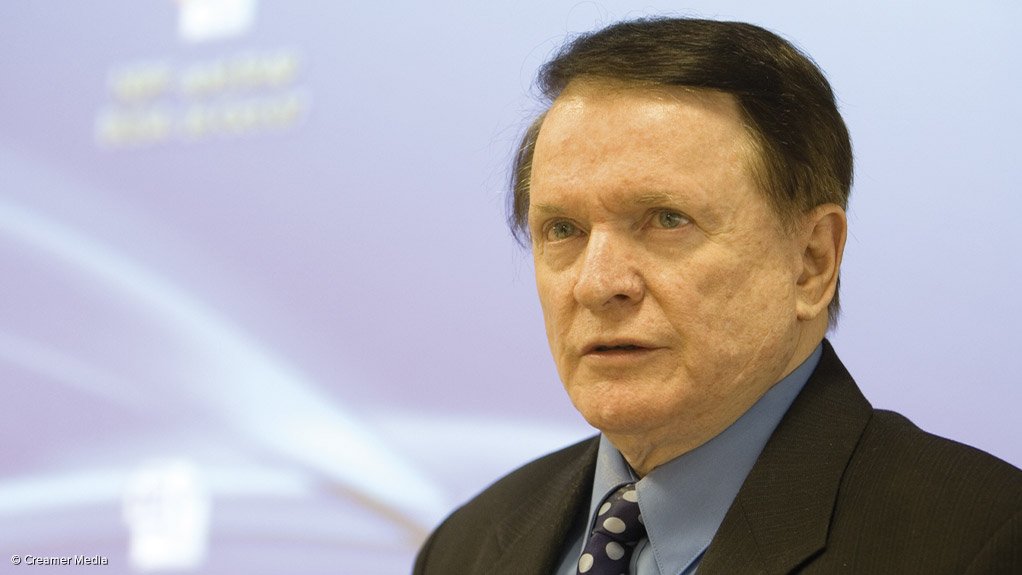Second-quarter GDP growth of 0.4% still weak


North West University Business School economist Professor Raymond Parsons
Photo by Creamer Media
Real GDP grew by a minimal 0.4% in the second quarter of the year, which could represent a turning point in the country’s business cycle, whose growth performance has been too low for too long, North-West University Business School economist Professor Raymond Parsons says.
He was commenting on the second-quarter GDP figures released by Statistics South Africa on September 3.
“The weak growth performance confirms the top priority now given to inclusive job-rich growth by the Government of National Unity (GNU). [It also confirms] the extensive damage to South Africa’s economic growth that Eskom’s previous loadshedding, in particular, did earlier in terms of widespread disruption, heavy costs and debilitating economic uncertainty,” Parsons avers.
He says that, with loadshedding receding recently, business and consumer confidence have recovered to better levels.
The growth figures for the period’s GDP show that renewed energy security since March has helped the country’s growth performance to gradually cross an important threshold, Parsons points out.
In the quarter under review, growth seems to have been largely dependent on much stronger household spending, he posits.
“The economy is not, however, on cruise control. Both gross fixed capital formation (GFCF) and exports remain weak links in the second quarter 2024 growth scenario. Total GFCF, especially, is a major driver of future economic growth.
“Complacency must, therefore, be avoided, as salient risks to the growth outlook linger, and there are still daunting socioeconomic challenges to be tackled,” Parsons stresses.
He emphasises that, therefore, key growth-friendly reforms, policies and projects still need to be expedited by the GNU, in collaboration with the private sector, to put the economy on a much higher and sustainable growth path.
“If South Africa plays its cards well from now on, it becomes possible to visualise South Africa’s real GDP growth broadly at 1% in 2024, improving to about 2% in 2025, and perhaps even reaching 3% by 2026,” Parsons says.
Meanwhile, think tank the Free Market Foundation (FMF) has taken a bleaker view, calling the 0.4% increase “paltry”, and for the GNU to act with greater urgency in addressing the constraints on economic growth.
It also called for the GNU to address the structural hindrances to growth in South Africa, and to rapidly reform the policy environment.
“We are rapidly approaching the end of the first 100 days of the GNU. The honeymoon period is almost over. So far, we have witnessed precious little by way of concrete reform in any department. In fact, what we have seen is the deeply worrying reversion to failed and harmful policies such as National Health Insurance, preferential procurement, and restrictive industrial policy, among others,” posits FMF CEO David Ansara.
The FMF is of the view that South Africa should shift its policy direction towards liberty. To this end, the FMF launched its “Liberty First” policy agenda for the present parliamentary term in June.
“The fastest way to grow the economy is to shrink the State. This requires deregulation of commerce, liberalisation of labour markets and a reduction of the size and scope of government,” Ansara posits.
Article Enquiry
Email Article
Save Article
Feedback
To advertise email advertising@creamermedia.co.za or click here
Comments
Press Office
Announcements
What's On
Subscribe to improve your user experience...
Option 1 (equivalent of R125 a month):
Receive a weekly copy of Creamer Media's Engineering News & Mining Weekly magazine
(print copy for those in South Africa and e-magazine for those outside of South Africa)
Receive daily email newsletters
Access to full search results
Access archive of magazine back copies
Access to Projects in Progress
Access to ONE Research Report of your choice in PDF format
Option 2 (equivalent of R375 a month):
All benefits from Option 1
PLUS
Access to Creamer Media's Research Channel Africa for ALL Research Reports, in PDF format, on various industrial and mining sectors
including Electricity; Water; Energy Transition; Hydrogen; Roads, Rail and Ports; Coal; Gold; Platinum; Battery Metals; etc.
Already a subscriber?
Forgotten your password?
Receive weekly copy of Creamer Media's Engineering News & Mining Weekly magazine (print copy for those in South Africa and e-magazine for those outside of South Africa)
➕
Recieve daily email newsletters
➕
Access to full search results
➕
Access archive of magazine back copies
➕
Access to Projects in Progress
➕
Access to ONE Research Report of your choice in PDF format
RESEARCH CHANNEL AFRICA
R4500 (equivalent of R375 a month)
SUBSCRIBEAll benefits from Option 1
➕
Access to Creamer Media's Research Channel Africa for ALL Research Reports on various industrial and mining sectors, in PDF format, including on:
Electricity
➕
Water
➕
Energy Transition
➕
Hydrogen
➕
Roads, Rail and Ports
➕
Coal
➕
Gold
➕
Platinum
➕
Battery Metals
➕
etc.
Receive all benefits from Option 1 or Option 2 delivered to numerous people at your company
➕
Multiple User names and Passwords for simultaneous log-ins
➕
Intranet integration access to all in your organisation

















